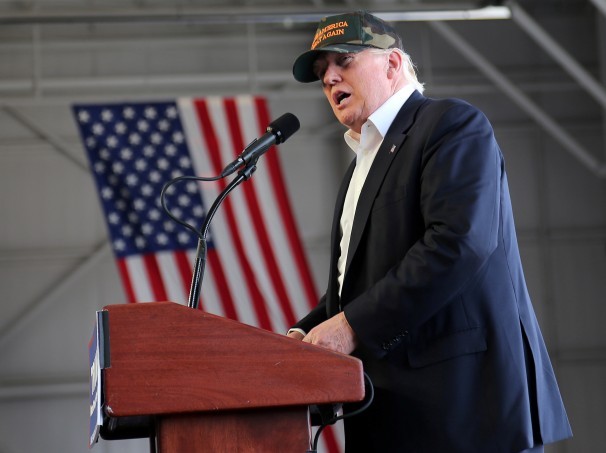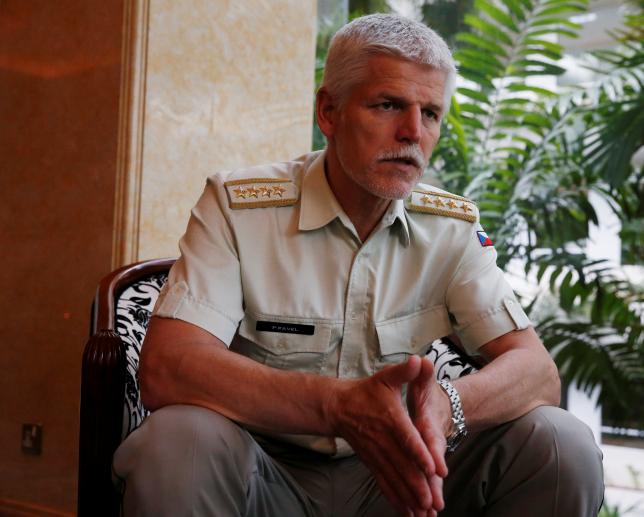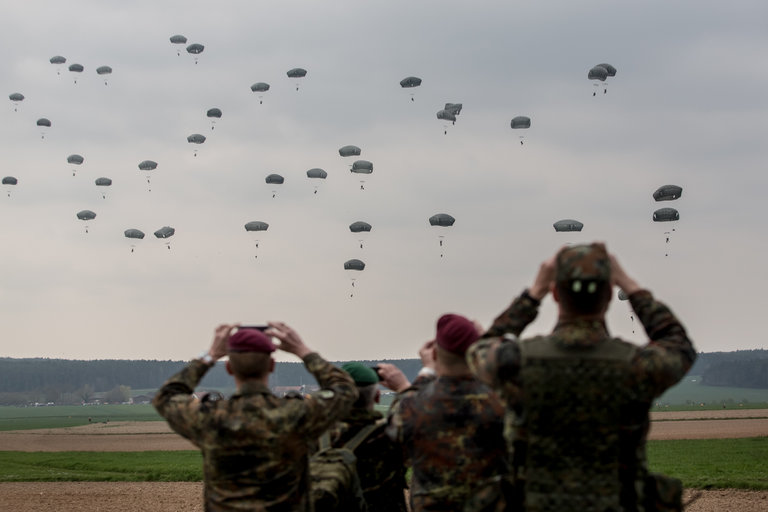by Robert Whitcomb | Jul 19, 2016 | News

Russian President Vladimir Putin won’t admit to the massive state-sponsored doping of Russia’s would-be Olympic athletes because that might be seen as admitting that Mr. Putin himself
is a criminal.
And so, Bloomberg reports, “Putin appears less and less willing to cooperate with international sports organizations and increasingly inclined to complain about political conspiracies against his country.”
“The issue is no longer just Russian athletes’ participation in the Rio Olympics: It’s about Putin’s state being labeled as criminal. Putin’s reaction under these circumstances — as when a Malaysian airliner was shot down over eastern Ukraine two years ago and Russia and its proxies were strongly implicated — is to deny, deny, deny.”
To read more, please hit this link.

by Robert Whitcomb | Jun 15, 2016 | AI World Society Summit
(June 21st, 2016) The Democratic National Committee has disclosed that Russian government hackers penetrated the DNC’s computer network to get into the entire database of opposition research on GOP presidential candidate Donald Trump.

DNC officials and security experts said that the intruders so thoroughly compromised the DNC’s system that they also could read all e-mail and chat traffic, reported The Washington Post.
Russian spies have been hard at work targeting U.S. candidates, especially Hillary Clinton and Donald Trump, and political parties. But details on those cases were not available, The Post reported.
Inevitably, Russian government spokesman Dmitri Peskov denied the reports.
“I completely rule out a possibility that the [Russian] government or the government bodies have been involved in this.’’
Russian government hackers are considered the best in world at industrial espionage, intellectual-property theft and cyberwar (as against Ukraine and Estonia), followed by the Chinese. The theft of opposition research on Mr. Trump might be considered a bit ironic since he has lauded Russian President Vladimir Putin for his strong leadership style. Mr. Putin has become Russia’s de-facto dictator in recent years.
To read The Washington Post story, please hit this link.
by Robert Whitcomb | Jun 10, 2016 | AI World Society Summit
Roger Cohen warns in The New York Times of the perils that lie just ahead with what he sees as the terrifying possibility that the European Union could collapse if the United Kingdom decides to leave the E.U.
Mr. Cohen implied that would make Russian President /Dictator Vladimir Putin and would-be tyrants in central Europe very happy.
Mr. Cohen concluded:
….I listened the other evening at the American Academy in Berlin as Henry Kissinger, the personification of realpolitik, insisted that the “necessity of the coherence of the Atlantic world” had become ‘even greater.’ With him was the American ambassador to the United Nations, Samantha Power, the recipient of this year’s Kissinger Prize — and long the personification of liberal interventionist idealism. In many ways they formed a strange duo. But their togetherness was also a statement: That, until now, America’s postwar European and internationalist commitment has held across the foreign policy spectrum.
“Realpolitik and idealism meet in the unity of Europe. The unthinkable, on both sides of the Atlantic, must be resisted before it is too late.’’
For the full column, hit this link.

by Robert Whitcomb | Jun 3, 2016 | Initiative
(June 6th, 2016) NATO’s top military officer, Gen. Petr Pavel, has denounced U.S. presidential candidate Donald Trump for calling the alliance obsolete and said that such comments played into the hands of its opponents.

Chairman of NATO’s military committee Petr Pavel speaks to Reuters on the sidelines of the IISS Shangri-La Dialogue in Singapore June 3, 2016. REUTERS/Edgar Su
In unusual criticism of a presidential candidate, Pavel, chairman of the NATO Military Committee, said that Russian “President (Vladimir) Putin and some others may be pleased by this approach”.
“To take such an approach would be a great mistake,” he said.
Mr. Trump has criticized the NATO alliance, created in 1949, as allegedly obsolete and too costly for America.
The North Atlantic Treaty Organization was set up in a different era, Trump has said, when the main threat to the West was the Soviet Union. He said that it was ill-suited to fighting terrorism.
Pavel, a former Czech Republic army chief, said the NATO alliance formed in 1949 was not perfect but it had great potential to protect the security of members.
He also said about Chinese expansionism in the South China Sea:
“Freedom of navigation in this region, through the South China Sea, is crucial for any further development in the region and it’s difficult to imagine that without this freedom, there will be stability and peace in this region.’’ For more information, read this link.

by Robert Whitcomb | Jun 1, 2016 | Initiative
(June 6th, 2016) As Russia becomes more aggressive and implies that it might attack NATO with tactical nuclear weapons, the leadership of the alliance is trying to encourage deadbeat members to step up and pay more attention to the threat from Vladimir Putin’s aggressive dictatorship.

NATO’s leadership is trying to get all member nations to spend at least 2 percent of their GDP on defense, which is the long-established but often ignored guideline.
There has been a gradual move toward higher NATO defense spending since Russia seized Crimea from Ukraine, attacked the eastern part of that nation, harassed NATO ships and planes in the Baltic, unleashed cyberattacks against NATO members and showed its growing war-making expertise in its highly effective bombing to help Syrian dictator Bashir Assad.
Still, a few NATO members continue to cut defense spending. And while the alliance is carrying more military training and planning exercises in eastern and central Europe, they are little compared to what the Russians are doing. Read this New York Times story.



